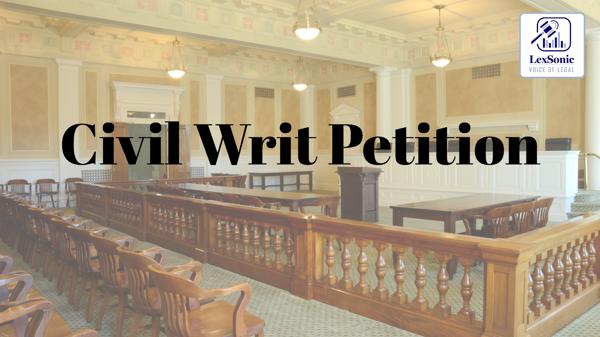High Court Dismisses Plea from Rekha Fashions: Upholds PF Dues and Denies Remand.
09 July 2025
Civil Writ Petition >> Civil & Consumer Law
The High Court has dismissed a set of writ petitions filed by Rekha Fashions, a private limited company operating a manufacturing unit in Ujjain, challenging orders from the Employees Provident Fund Appellate Tribunal (EPFAT). The company sought to overturn decisions related to its outstanding provident fund (PF) contributions, interest, and penalties spanning over two decades. The court's ruling underscores the importance of timely compliance with statutory obligations and the limited scope for judicial intervention in cases of persistent default.
The Protracted Dispute:
Rekha Fashions, an establishment covered under the Employees Provident Funds and Miscellaneous Provisions Act, 1952 (EPF Act), was obligated to deposit PF contributions. While employee shares were deposited until March 2002, the employer's contributions ceased after March 2000. The company attributed this default to the closure of operations, mounting losses, inability to recover dues from exporters, and a worker's strike in 2002, which eventually led to the unit's permanent closure.

Despite numerous representations seeking waiver of interest and penalty, no relief was granted. A coercive recovery action in February 2002 saw enforcement officers compel the company's Director to issue a post-dated cheque for Rs. 23,77,808, which subsequently bounced due to insufficient funds. This led to criminal proceedings under Section 138 of the Negotiable Instruments Act and Section 406 of the Indian Penal Code.
Appeals and Remands:
Proceedings under Section 7A(1) of the EPF Act were initiated, resulting in an order on October 30, 2003, determining the company's liability along with interest. Rekha Fashions challenged this order before the EPFAT in April 2005. However, the Tribunal initially dismissed the appeals due to a significant delay of 470 days.
The company then approached the High Court, which, in October 2006, granted a conditional revival of the appeals. The High Court directed the EPFAT to reconsider the appeals on their merits, provided Rekha Fashions deposited ?5,00,000. The company complied, and the appeals were restored.
Despite this, the EPFAT, in its final order dated November 30, 2010, again dismissed all appeals. The Tribunal upheld the departmental determination of liability, noting the undisputed applicability of the EPF Act and the company's failure to produce relevant records during the inquiry. Crucially, the Tribunal also held that the company had not complied with the mandatory pre-deposit requirement under Section 7-O of the EPF Act, which barred a consideration of the appeal on merits.
Aggrieved, Rekha Fashions filed a review petition, claiming an ex-parte hearing due to lack of notice. However, the Tribunal dismissed the review petition on April 12, 2013, affirming that the matter was heard in the presence of both parties' counsel. This led to the present writ petitions before the High Court.
Petitioner's Arguments in High Court:
Senior Counsel for the petitioner, Shri Girish Patwardhan, contended that the impugned orders were flawed due to a lack of proper hearing and the Tribunal proceeding ex parte. He argued that the inclusion of lay-off compensation and incentive payments in "basic wages" for PF calculation was incorrect, as these do not constitute remuneration under a contract of employment. He also pointed out that the company's Directors were acquitted in the criminal proceedings under Section 406 IPC.
Respondent's Counter Arguments:
Counsel for the respondent (EPFO) countered that the EPFAT's November 30, 2010, order was passed after a full hearing and was not challenged within a reasonable time. They highlighted the significant delay in filing the review application (nearly three years) and the subsequent delay in filing the writ petitions. The respondent argued that the petitioner's consistent failure to produce records or justify a waiver of the Section 7-O pre-deposit disentitled them to discretionary relief. They also noted that the company had not raised many of the current legal objections before the Tribunal.
Court's Conclusion:
The High Court meticulously reviewed the long history of the case. It rejected the petitioner's eleventh-hour request to remand the matter back to the Assistant Provident Fund Commissioner, emphasizing that Rekha Fashions had ample opportunities to produce records before various authorities since 2002. The court noted the company's consistent avoidance of liability, including the dishonored cheque and the subsequent criminal proceedings (even though the Directors were acquitted in the IPC case).
The court underscored that the company's manufacturing unit officially closed in September 2003, but until a formal declaration under the Industrial Disputes Act, the employer remained liable for full wages and PF contributions. It observed that the Assistant Provident Fund Commissioner had already provided sufficient opportunities for the company to appear and furnish records.
Ultimately, the High Court concluded that after over two decades, and given the repeated failures of the petitioner to provide necessary documents or avail themselves of previous opportunities, there was no ground for further interference.
In light of these findings, all writ petitions were dismissed, affirming the EPFAT's decisions and the company's long-standing provident fund liabilities.
